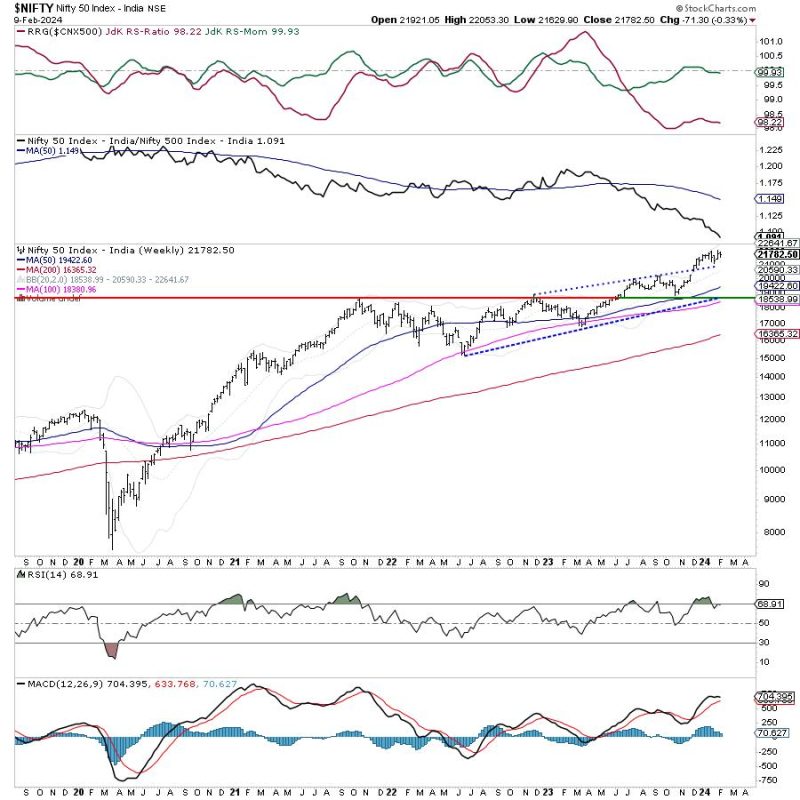The Nifty, one of India’s leading stock market indices, is poised for a period of consolidation in the week ahead, according to industry experts. In a broad range, it is expected that the index will maintain its current position, with any significant upward or downward movements being unlikely, unless certain key levels are breached.
As investors and traders analyze the market environment, they look for indications of potential price movements. Technical analysis plays a crucial role in determining these movements by studying historical price patterns and trends. A consolidation phase typically occurs after a significant upward or downward movement and is characterized by a lack of clear direction in the market.
The Nifty has been on a roller-coaster ride lately, witnessing volatile swings due to various economic and political factors. However, this week, experts believe that the index will stabilize within a broad range, indicating a period of consolidation. While consolidation can be frustrating for some traders who thrive on significant price movements, it provides an opportunity for investors to reassess their positions and make informed decisions.
To gauge the possible range within which the Nifty may consolidate, traders commonly refer to key support and resistance levels. These levels are derived from the analysis of historical price action and act as psychological barriers for traders. In this case, experts recommend focusing on two critical levels: support at 15,300 and resistance at 15,800.
If the Nifty manages to break the resistance level at 15,800, it may signal a bullish sentiment and could potentially generate a new wave of buying activity. On the other hand, if the index falls below the support level at 15,300, it might trigger selling pressure and lead to a downward movement.
While these support and resistance levels provide crucial guidance, it is important to note that they are not fixed rules. Market conditions can change rapidly, leading to unexpected price movements. Traders and investors should always exercise caution and ensure they have a well-diversified portfolio to mitigate risk.
Another factor that may influence the Nifty’s direction is global market sentiment. The index is often impacted by international economic events, such as decisions made by major central banks, geopolitical tensions, and global trade dynamics. It is vital to keep a watchful eye on such developments to gauge their potential impact on the Indian market.
In conclusion, the week ahead for the Nifty is expected to be characterized by consolidation in a broad range. Traders and investors should closely monitor key support and resistance levels at 15,300 and 15,800, respectively. While this analysis provides valuable insight, it is important to stay abreast of global market trends and be prepared for unexpected shifts. By remaining vigilant and adaptive, traders can make informed decisions and navigate the market with confidence.
